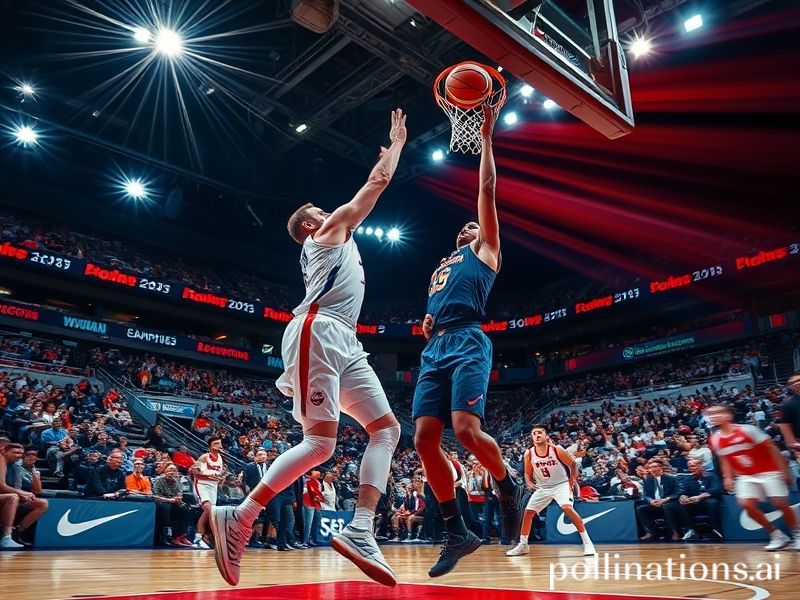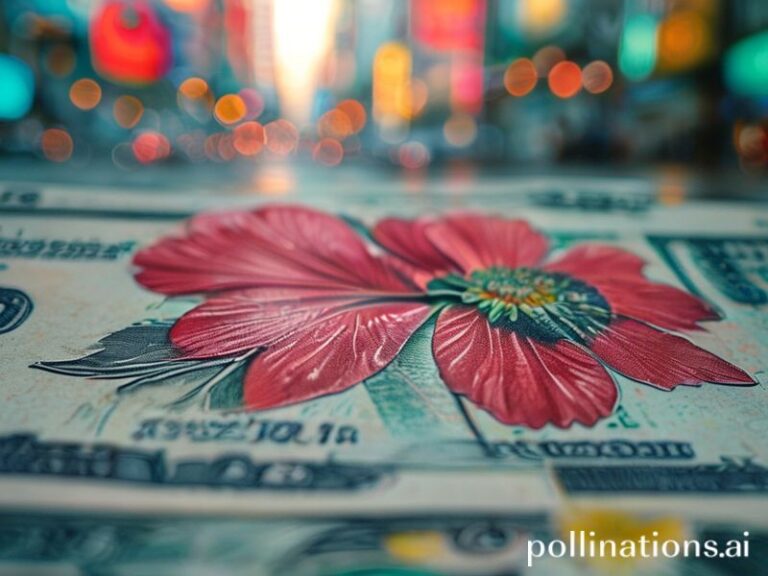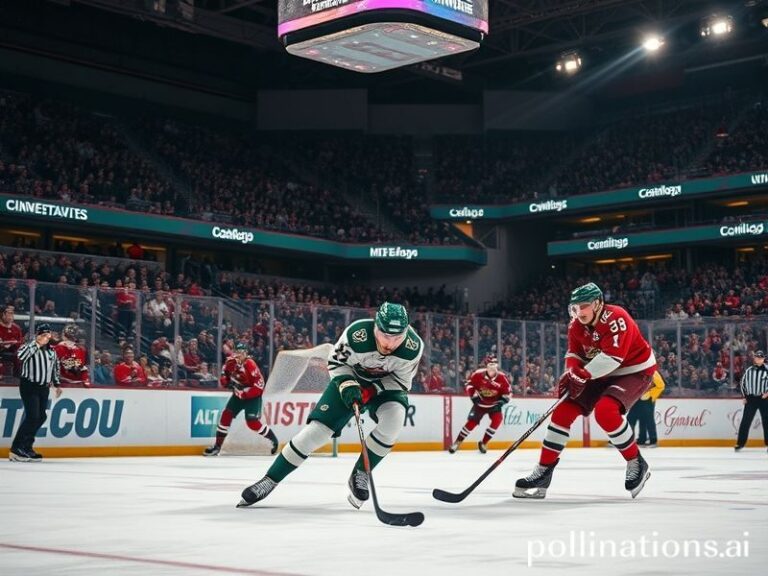eurobasket
Eurobasket 2025: When the Continent’s Fractured Egos Learn to Share One Orange Ball and a Trophy
By the Global Affairs Desk, Dave’s Locker
Berlin—The biennial festival of hardwood nationalism known as Eurobasket has rolled back into town, and once again Europe is pretending that twenty-four countries can resolve centuries of mutual suspicion by sweating through polyester jerseys. Tip-off is Friday, but the real tournament began months ago in the quieter arenas of Brussels, where EU budget clerks debated whether subsidizing Latvian three-point camps counts as “cultural cohesion.” Spoiler: it does, because nothing unites Europeans like the promise of beating the French at something.
Outsiders often mistake Eurobasket for a quaint regional spin-off—like the Eurovision Song Contest with fewer key changes and marginally better haircuts. That’s adorable. In reality, this is the continent’s most reliable geopolitical weather vane. When Turkey’s guards start jawing with Greece’s forwards, you can set your watch to a fresh Aegean maritime dispute within six fiscal quarters. When Serbia loses on a dubious foul call, EU enlargement talks hibernate for the winter. And when Germany hosts and still can’t reach the semis, Berlin’s coalition partners start arguing about immigration reform, just to feel something.
Global implications? Start with the Americans, who treat Eurobasket the way hedge-fund managers treat Burning Man: fly in, take notes, leave before the body paint dries. NBA scouts are here in such numbers that the Berlin Marriott lobby looks like a G7 summit for people who still get excited about wingspan. Every eye-roll at a missed box-out is secretly catalogued for next summer’s trade negotiations back in the States. Meanwhile, China’s state broadcasters have quietly bought streaming rights—not for basketball enlightenment, but because nothing calms a restive population like watching Spaniards argue over a traveling violation at 3 a.m. Beijing time.
Africa watches too, nursing the polite resentment of the perpetually uninvited. Nigeria’s federation sent a delegation this year to observe “organizational excellence,” which is diplomat-speak for figuring out how to host without the power going out. South Sudan, barely older than Giannis Antetokounmpo’s jump shot, sees Eurobasket as a tutorial in nation-branding: win two games and the World Bank forgets your civil war for a fiscal cycle.
The corporate overlay is predictably dystopian. Courtside LED boards rotate through ads for cryptocurrencies that no longer exist, while halftime giveaways feature NFTs of Slovenian bench celebrations—“own the moment Luka Dončić rolled his ankle in 4K.” Fans, already marinated in inflation, shrug and buy the €12 beer because what else bonds humanity if not overpriced lager and collective amnesia?
Security is tight in that uniquely European way: armed police in Kevlar herding tipsy Lithuanians past concrete bollards shaped like flowerpots. Everyone pretends this is normal now, the way one pretends airplane food is cuisine. Somewhere, a Brussels think-tank has already published a white paper titled “Basketball as Soft Power Deterrent,” footnoted by someone who’s never been fouled in the post.
And yet, for all the cynicism, the thing still works. A buzzer-beater drops, a Croatian kid hugs a confused Finnish tourist, and for two whole seconds no one checks their phone for war updates. The orange ball, indifferent to passports, keeps bouncing. Commentators call it sport; historians will call it the only functional common currency Europe ever produced.
When the final whistle blows, the trophy will be hoisted by whichever nation best synchronized its pick-and-roll coverage with its credit rating. Everyone else will go home nursing fresh conspiracy theories and souvenir foam fingers. The trophy itself will spend the next two years touring airports and shopping malls, silently advertising the next cycle of hope and recrimination. And somewhere in the departure lounge, a Latvian guard and a Spanish forward will share earbuds, laughing at the same TikTok. That, dear reader, is how the continent edges forward—one petty grudge, one shared playlist at a time.
Until 2027, when we do it all again in Belgrade, assuming the lights still work.







